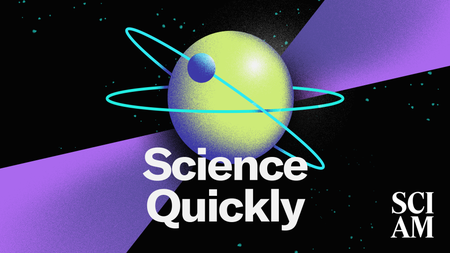
AI Offers Digital Immortality for Deceased Loved Ones—But Should It?
AI chatbots called “griefbots” or “deadbots” offer our loved ones a new digital way to grieve but raise ethical and privacy concerns.
Fonda Mwangi is a multimedia editor at Scientific American. She previously worked as an audio producer at Axios, The Recount and WTOP News. She holds a master’s degree in journalism and public affairs from American University in Washington, D.C.

AI Offers Digital Immortality for Deceased Loved Ones—But Should It?
AI chatbots called “griefbots” or “deadbots” offer our loved ones a new digital way to grieve but raise ethical and privacy concerns.
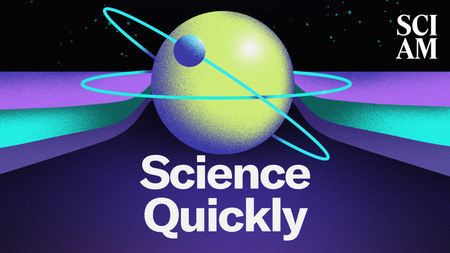
Solar Shadow Play, Seances for Science, and More from Our 1925 Coverage
We present a historical romp through Scientific American—100 years ago.
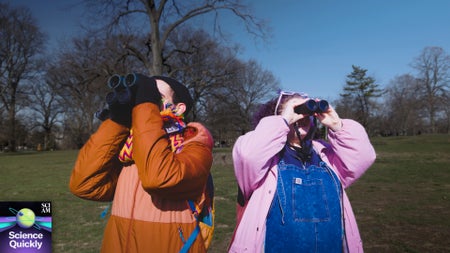
How to Find Hidden Nature in Any Urban Park Near You
Take a walk through Prospect Park with Wild NYC writer Ryan Mandelbaum and learn to connect with nature no matter how urban your environment is.

Misunderstood and Maligned Snakes Are Worthy Of Our Sympathy
In a new book called Slither, Stephen S. Hall takes a deep dive into the biology and history of one of the most reviled animals.

Public Health Focuses on Childhood, Magnetic Poles Once Wandered, and Colossal Squid Discovered
This week’s news roundup covers measles and whooping cough cases, evidence of a carbon cycle on Mars and the first glimpse at a colossal squid in its natural habitat.
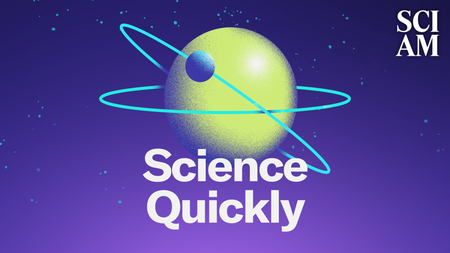
The Past 35 Years of Science and Technology from Our Editor Gary Stix’s Perspective
Hear takeaways from 35 years at Scientific American from Gary Stix, our recently retired mind and brain editor.

A Nontoxic Disinfectant That Is Safe for Surfaces and Skin
Hypochlorous acid has a lot of buzz in the beauty industry, but this nontoxic disinfectant has many possible uses.

A Long Day on Uranus, a Better Method of Making Coffee and Disputed Dino Decline
A fluid study homes in on the best method to make a cup of coffee, scientists use the Hubble Telescope to reassess the length of a day on Uranus, and we discuss more of the latest in science in this news roundup.

How Is This Prenatal Blood Test Detecting Cancer in Pregnant Patients?
Researchers are trying to understand how a common prenatal blood test called NIPT is detecting cancer in some pregnant patients.

Bacterial Vaginosis Sometimes Acts like an STI
Bacterial vaginosis is an irritating overgrowth of pathogenic bacteria. A new study has found that some cases of the condition should be treated like a sexually transmitted infection.

American Lifespans, Monkeys That Yodel, Measles, and More
States sue HHS for public health cuts, measles cases continue to rise, and a study finds Americans live shorter lives compared with their European counterparts.

Losing USAID’s Public Health Programs Imperils the World
USAID is responsible for global health efforts that have saved the lives of millions of children. What happens when those programs are cut?
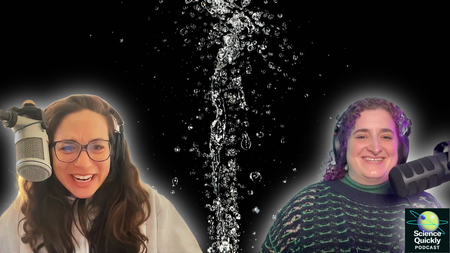
Unpacking the Mystery of Squirting: What Science Really Says
A mysterious and often debated aspect of human sexuality colloquially known as “squirting” sparks controversy. This episode explores what research reveals.

Shark Sounds, Molecules on Mars and Continued Federal Cuts
Cuts to federal health and science agencies continue. Plus, we discuss the sounds of sharks, the meaning of Martian molecules and one big dino claw.

Invasive Plants Are Not the Enemy
Botanist Mason Heberling challenges how we think about invasive species and our role in their spread.

NASA Astronauts Finally Return, Seals Hold Their Breath, and Penguin Poop Stresses Out Krill
In this week’s news roundup, two NASA astronauts finally return to Earth after nine unexpected months in space, gray seals hold their breath for more than an hour, and penguin poop panics krill.

The Neurosurgeon Who Advised Severance Breaks Down Its Science
A neurosurgeon who has acted as a consultant for Severance explains the science behind the show’s brain-altering procedure—and whether it could ever become reality.

Debunking Colonoscopy Myths That Could Be Putting Your Health at Risk
A colonoscopy can save your life, but misinformation keeps many people from getting one. A gastroenterologist sets the record straight.

New NASA Missions, Bonus Moons for Saturn and Whale Urine That Balances Ocean Chemistry
The EPA rolls back regulations, NASA launches two exciting missions, and we discuss the surprising way whale urine moves nitrogen across the ocean.

Robotics Researchers Bring The Electric State’s Cosmo to Life
A robotics researcher takes on the Russo brothers’ vision from the new movie The Electric State.

On COVID’s Fifth Anniversary, the U.S. Remains Vulnerable to Infectious Disease
On COVID’s fifth anniversary, the U.S. is facing an outbreak of tuberculosis in Kansas that makes strong public health systems as important as ever.

Measles Misinformation Sparks Concern, Supreme Court Weakens EPA, and Scientists Engineer Woolly Mice
In this week's news roundup, we dig into measles misinformation, ozone recovery and new findings on using nasal cartilage to treat knee injuries.

Author John Green on How Tuberculosis Shaped Our Modern World
Novelist John Green talks about his new nonfiction book, Everything is Tuberculosis, and the inequities in treatment for the highly infectious disease

How Plastics in the Brain Connect to the Wider Debate over Petroleum
Many people are concerned about microplastics reaching our brain—but few realize how this connects with petroleum production and the climate crisis